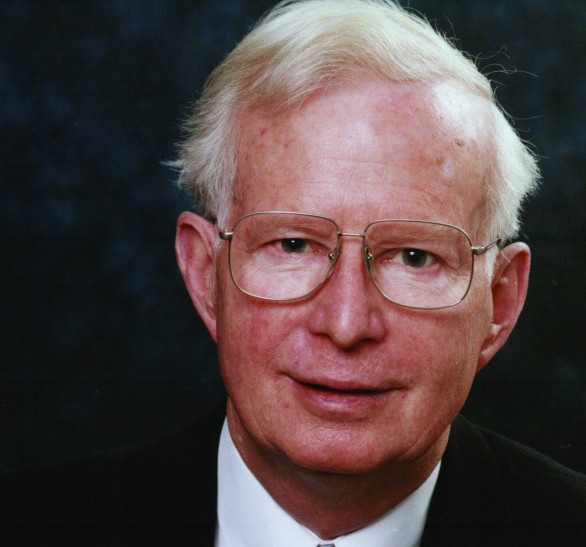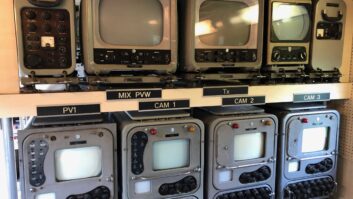
John Wilson, who led IBC through its transition to an independent annual event, has died at the age of 81. His career mapped many of the dramatic changes that have driven our industry over the last 60 years.
While still a student he spent the summer of 1953 working with the BBC and was tempted to return after college, but decided instead to join EMI, where he had the chance to work on the latest technology – transistors. “On completion of my graduate apprenticeship I was offered a position in the advanced circuits group, run by a man of great vision called Charles Kramosky,” John later recalled. “At that time I was almost the only person with a serious knowledge of transistors at EMI Feltham.”
His career also included two years as a ground radar signals officer in the Royal Air Force, and a return to EMI where he became acquainted with television technology once more. But the big shift came in 1965 when he was invited to join the fledging Prowest Electronics, set up to develop transistorised studio monitors and other broadcast hardware. From product development he moved into sales, growing the business and developing a substantial global reputation.
In 1977 he accepted an offer to become sales director of Link Electronics. His vision at that time led the company in new directions, including distribution of some of the earliest large screen electronic displays. That was spun out into a new business, Anna Valley Electronics, with John Wilson as managing director.
While at Prowest, he visited the first ever IBC, in 1967, and recognised it as a vital showcase for technology. In 1980 the Royal Television Society asked him to be its representative on the management committee of IBC, the start of an association between John Wilson and IBC that lasted almost 25 years.
Skills, contacts and vision
By the end of the eighties it became obvious to all that IBC had outgrown its then home in Brighton. Moving to a new venue was clearly vital, but equally it was fraught with political and practical challenges. With the retirement of the previous chair in 1991, it fell to John Wilson to lead this most important stage of IBC’s development.
Under his calm but firm diplomacy the seemingly impossible was achieved and a new structure was built for IBC. The original organisation had five trade bodies – IABM, IEEE, RTS, SCTE and SMPTE – represented on a management committee with the event organised by a sixth, IEE (now IET).
The ever-expanding IBC would need a lot more muscle, so Wilson and his team proposed a structure whereby all six were partners in a new and independent IBC. This balanced the efforts required from the stakeholders with a share in the rewards of IBC.
Many people were involved in the negotiations, but its success was due in very large measure to Wilson’s skills, contacts, and vision; and by his indefatigable capacity for travel to talk to sponsors, exhibitors and visitors. The first IBC in Amsterdam took place in 1992; the show became an annual event in 1995; and the new business structure was agreed in 1998. Wilson was chair of the management committee from 1991 to 1998, and served as president of IBC from then until 2004.
Through it all he remained softly spoken, polite and calm at all times. David McGregor, founder of TSL and a veteran of every single IBC, said “John Wilson was always the perfect gentleman who in his own quiet way worked extremely hard for the benefit of IBC and the broadcast industry in general. His chairmanship transformed IBC into the well-drilled organisation it is today.”
David Crawford, a former chair of the IBC Conference, added “John was never too busy to give his time to show an interest, and help someone feel good about their individual contribution to IBC. A gentleman leader with a gift to motivate.”
Wilson was a fellow of RTS and SMPTE, and an honorary member of IABM. In 2005 Her Majesty the Queen appointed him OBE for services to the television and electronics industry. As well as his work with IBC he was a member of the management council of the British Board for Film Classification. Happily married for 53 years he is survived by his wife Jacquie, three children and four grandchildren.







